(Page créée avec « To insulate the foam at best, you need to roll it using survival blankets. So as to do that, use adhesive tape to attach the blankets on both sides of the foam. ») |
(Page créée avec « "NB: It is better to use the aluminiu side on top so as to reflect body's heat." ») |
||
| Ligne 63 : | Ligne 63 : | ||
| − | + | "NB: It is better to use the aluminiu side on top so as to reflect body's heat." | |
|Step_Picture_00=Matelas_isolant_Capture_d_e_cran_2020-09-22_a_14.15.08.png | |Step_Picture_00=Matelas_isolant_Capture_d_e_cran_2020-09-22_a_14.15.08.png | ||
|Step_Picture_01=Matelas_isolant_Capture_d_e_cran_2020-09-22_a_14.17.20.png | |Step_Picture_01=Matelas_isolant_Capture_d_e_cran_2020-09-22_a_14.17.20.png | ||
Version du 19 octobre 2020 à 19:22
Description
Building an insulated mattres from life jacket foams
Introduction
NEED :
With the winter arriving on Lesvos island, it was decisive to propose a solution to the cold infiltration inside the tents. In addition to the wooden pallets, this insulated mattress enables to improve insulation from the ground.
ACCESSIBILITY :
Matériaux
Life jackets foam
2 survival blankets
Plastic tarpaulin (could be replaced by a sewed tarpauling made from inflatable dinghy's fabric )
Adhesive tape
Outils
Scissors/utility knife
Heating gun
Gloves
Étape 1 - Cut the foam from the life jackets
It consists of removing the foam inside the life jackets using scissors or an utility knife.
Étape 2 - Assemble the foam pieces
To assemble the pieces, use the heating gun to melt a little bit the foam before sticking on another piece of foam. The goal is to achieve some kind of patchwork of foam with the size wanted
For example it is possible to realize a big mattress covering entirely the floor of a tent.
Étape 3 - Roll the foam with survival blankets
To insulate the foam at best, you need to roll it using survival blankets. So as to do that, use adhesive tape to attach the blankets on both sides of the foam.
"NB: It is better to use the aluminiu side on top so as to reflect body's heat."
Étape 4 - Recouvrir d'une bâche plastique
Recouvrir l'intégralité du matelas d'une bâche plastique pour éviter que l'eau et l'humidité ne pénètre à l'intérieur de celui-ci. L'accrocher de nouveau avec du scotch.
Étape 5 - Utilisation
Le matelas est au-dessus de la palette et de la toile de tente. Pliable et assez léger, il peut se transporter facilement.
Notes et références
Il est aussi possible de "coller" les bouts de mousse ensemble grâce à des attaches issues de la découpe des bouteilles en plastique (en tranche) et de s'en servir comme des sortes de lacets rassemblant les bouts entre eux via des petits trous préalablement effectués dans la mousse.
Published
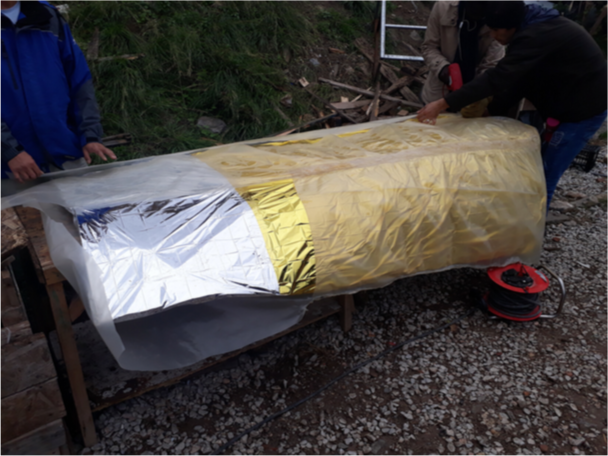
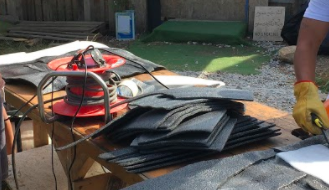
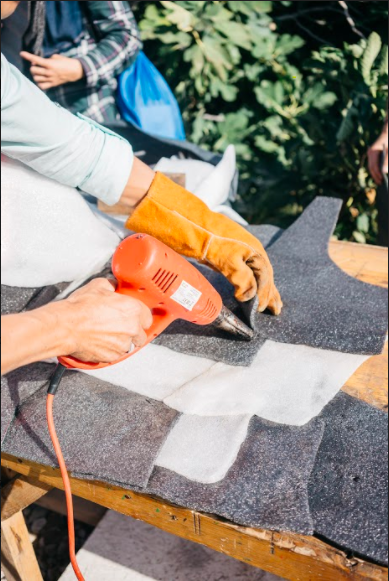
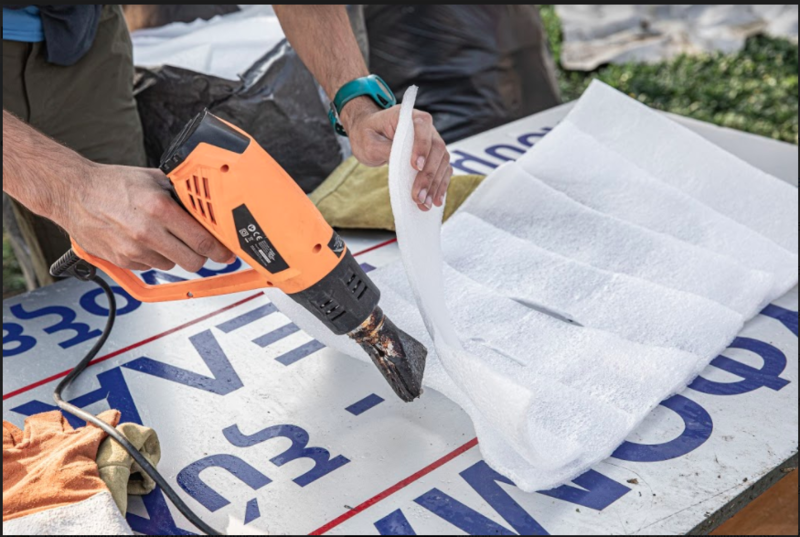
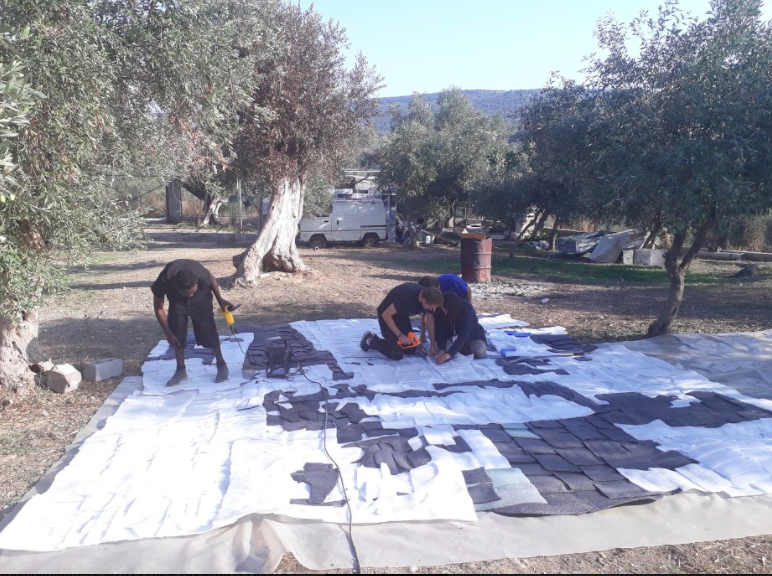
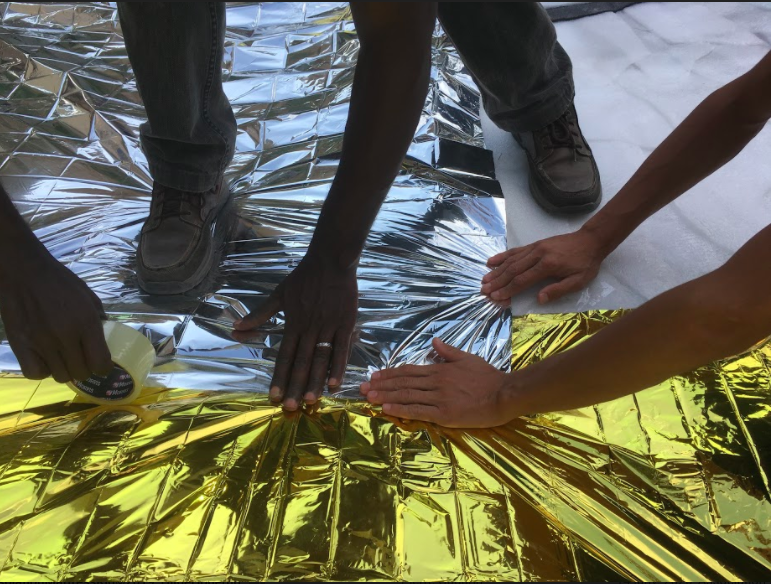
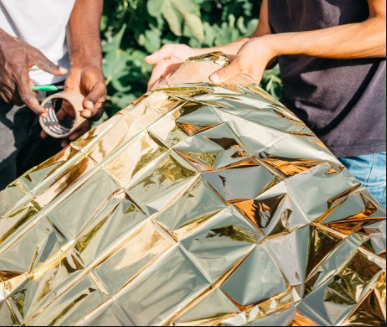
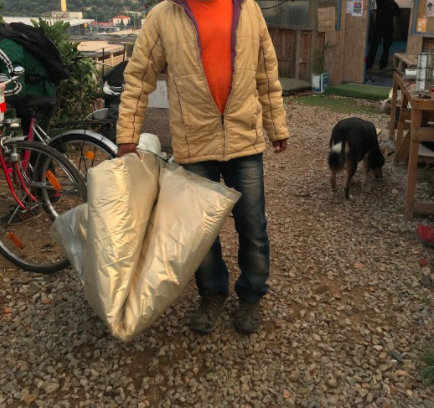
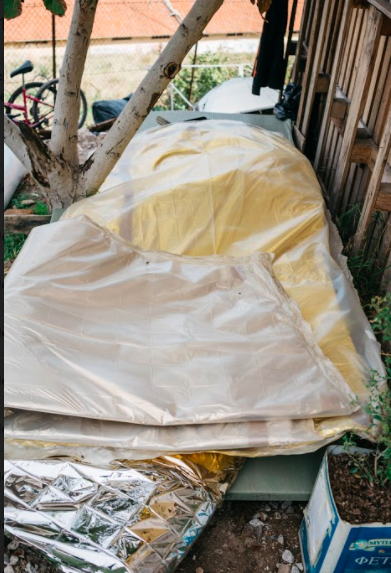
 Français
Français English
English Deutsch
Deutsch Español
Español Italiano
Italiano Português
Português